 Like the AIDS Quilt itself to which the title alludes, A Quilt for David is a memorial to victims of the AIDS epidemic that swept up hundreds of thousands of lives in the last forty years, in the same scary way the COVID pandemic has killed so many people in 2020. Only, this memorial for David Acer memorializes more than the victims of the HIV virus. It also revisits the homophobic hysteria that drove so much of the narrative. “All of them emboldened by…a mute president,” as Reigns writes in one of the 79 untitled meditations (both poems and prose pieces) that make up this breathtaking collection.
Like the AIDS Quilt itself to which the title alludes, A Quilt for David is a memorial to victims of the AIDS epidemic that swept up hundreds of thousands of lives in the last forty years, in the same scary way the COVID pandemic has killed so many people in 2020. Only, this memorial for David Acer memorializes more than the victims of the HIV virus. It also revisits the homophobic hysteria that drove so much of the narrative. “All of them emboldened by…a mute president,” as Reigns writes in one of the 79 untitled meditations (both poems and prose pieces) that make up this breathtaking collection.
Category: Poetry Reviews
A review of The Owl Inside by Ivy Ireland
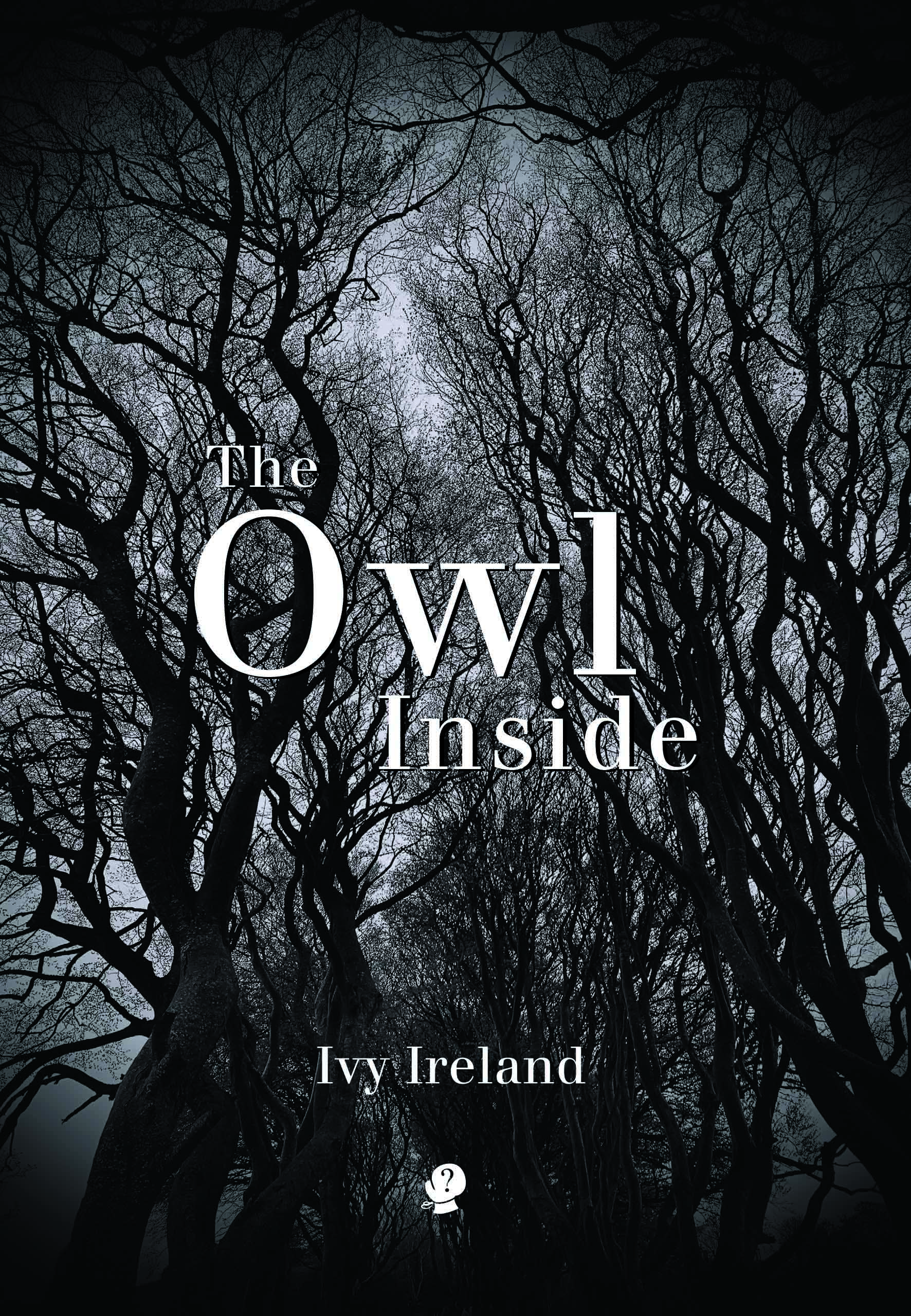 All of which is to say that this smallish, quiet book is magnificent. But you can’t get away with reading it once, or quickly. It calls you back, draws you in, tricks you into thinking it’s about flying owls, changing peed sheets, watching water wash over the rocks, and taking out the trash, and indeed it is about peed sheets, owls, and taking out the trash just as our lives are about those things, and yet, it is also about everything.
All of which is to say that this smallish, quiet book is magnificent. But you can’t get away with reading it once, or quickly. It calls you back, draws you in, tricks you into thinking it’s about flying owls, changing peed sheets, watching water wash over the rocks, and taking out the trash, and indeed it is about peed sheets, owls, and taking out the trash just as our lives are about those things, and yet, it is also about everything.
A review of Kissing the Long Face of the Greyhound by Yvonne Zipter
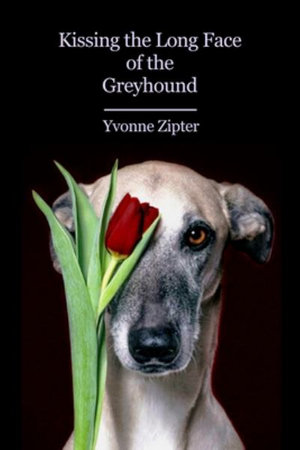 Personification and identification are routes to empathy, to feeling what is felt by another: another person, an animal, an inanimate object. Yvonne Zipter pursues this goal by swapping pieces of herself with pieces of the world.
Personification and identification are routes to empathy, to feeling what is felt by another: another person, an animal, an inanimate object. Yvonne Zipter pursues this goal by swapping pieces of herself with pieces of the world.
A review of Chimera by Jane Skelton
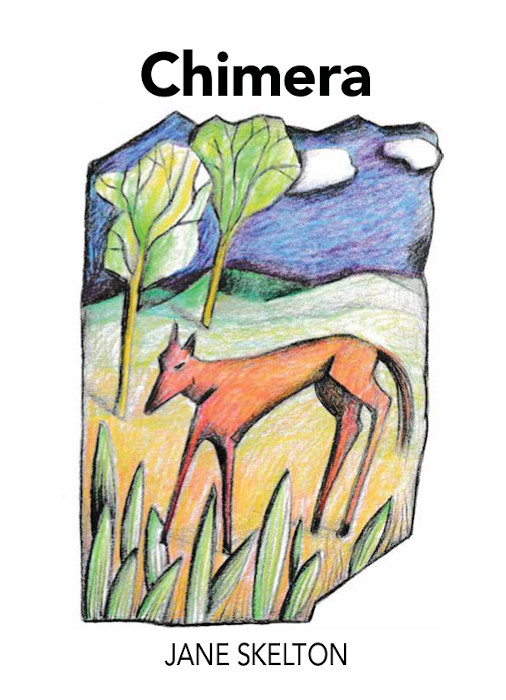 Chimera says a lot in so few pages, Skelton makes the reader enter moments, fragments of time, the land, life: imagined and real. In this book Skelton once more has demonstrated her skills as a writer.
Chimera says a lot in so few pages, Skelton makes the reader enter moments, fragments of time, the land, life: imagined and real. In this book Skelton once more has demonstrated her skills as a writer.
A review of Ash Wedding by Clarinda Harriss/Peter Bruun
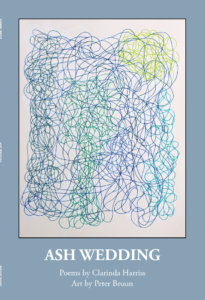 Just as her previous collaboration with Peter Bruun, Innumerable Moons, deals with love, loss and grief in later life, so too does Clarinda Harriss’ new collection, Ash Wedding, amounts to an extended elegy for Harriss’ friend, Steve Davitt, whom she’d known for more than three decades and with whom she spent the final two years of his life. Davitt suffered a massive heart attack while walking their dog on the streets of Baltimore in April of that already devastating year, 2020. The dominant theme in these poems is grief, raw, unassuageable grief.
Just as her previous collaboration with Peter Bruun, Innumerable Moons, deals with love, loss and grief in later life, so too does Clarinda Harriss’ new collection, Ash Wedding, amounts to an extended elegy for Harriss’ friend, Steve Davitt, whom she’d known for more than three decades and with whom she spent the final two years of his life. Davitt suffered a massive heart attack while walking their dog on the streets of Baltimore in April of that already devastating year, 2020. The dominant theme in these poems is grief, raw, unassuageable grief.
A review of You Don’t Have To Go To Mars For Love by Yona Harvey
 Reading through You Don’t Have to Go to Mars for Love, I experienced a litany of emotion that found me racking through memories, hopes, and losses. The work is astoundingly raw and explorative. Harvey dances between forms and visual presentation with the precision and coherency of a professor, the care of a mother, and the creative wield of a comic book artist.
Reading through You Don’t Have to Go to Mars for Love, I experienced a litany of emotion that found me racking through memories, hopes, and losses. The work is astoundingly raw and explorative. Harvey dances between forms and visual presentation with the precision and coherency of a professor, the care of a mother, and the creative wield of a comic book artist.
A review of Fog and Light edited by Diane Frank
 Fog and Light: San Francisco through the Eyes of the Poets Who Live Here is a real smorgasbord of San Franciscan scenery, energy and art. Harvey Milk, Castro Street, the San Francisco Symphony, San Francisco Giants Stadium and Candlestick Park – Orlando Cepeda and Willie Mays! – all appear in these pages. It’s been almost fifty years since I was in San Francisco, but it all comes back vividly in these poems.
Fog and Light: San Francisco through the Eyes of the Poets Who Live Here is a real smorgasbord of San Franciscan scenery, energy and art. Harvey Milk, Castro Street, the San Francisco Symphony, San Francisco Giants Stadium and Candlestick Park – Orlando Cepeda and Willie Mays! – all appear in these pages. It’s been almost fifty years since I was in San Francisco, but it all comes back vividly in these poems.
A review of Journey to Tatev by Lillian Avedian
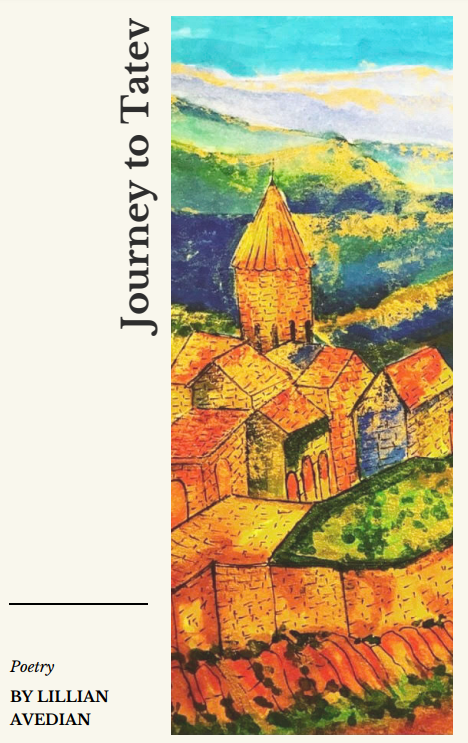 Journey to Tatev is a love poem to the self and to the other, written along the trajectory of a single journey. These airy, deeply rhythmic poems encompass the multi-lingual voice of a migrant, coming-of-age, coming out, coming to terms with the past and future simultaneously. Words and notes dance across the page, engaging all of the senses in this vibrant and deeply moving collection.
Journey to Tatev is a love poem to the self and to the other, written along the trajectory of a single journey. These airy, deeply rhythmic poems encompass the multi-lingual voice of a migrant, coming-of-age, coming out, coming to terms with the past and future simultaneously. Words and notes dance across the page, engaging all of the senses in this vibrant and deeply moving collection.
A review of Chronicity by Michael J Leach
 Leach manages the visual in particularly powerful ways in Chronicity. The concrete poems in the collection take on many forms, weaving and working through, around, between and besides their subject matter, playing with font, space, shape, and design to stretch out time, slow the reader, twist back on themselves, emphasise and create sound paths in the ear.
Leach manages the visual in particularly powerful ways in Chronicity. The concrete poems in the collection take on many forms, weaving and working through, around, between and besides their subject matter, playing with font, space, shape, and design to stretch out time, slow the reader, twist back on themselves, emphasise and create sound paths in the ear.
A review of Popular Longing by Natalie Shapero
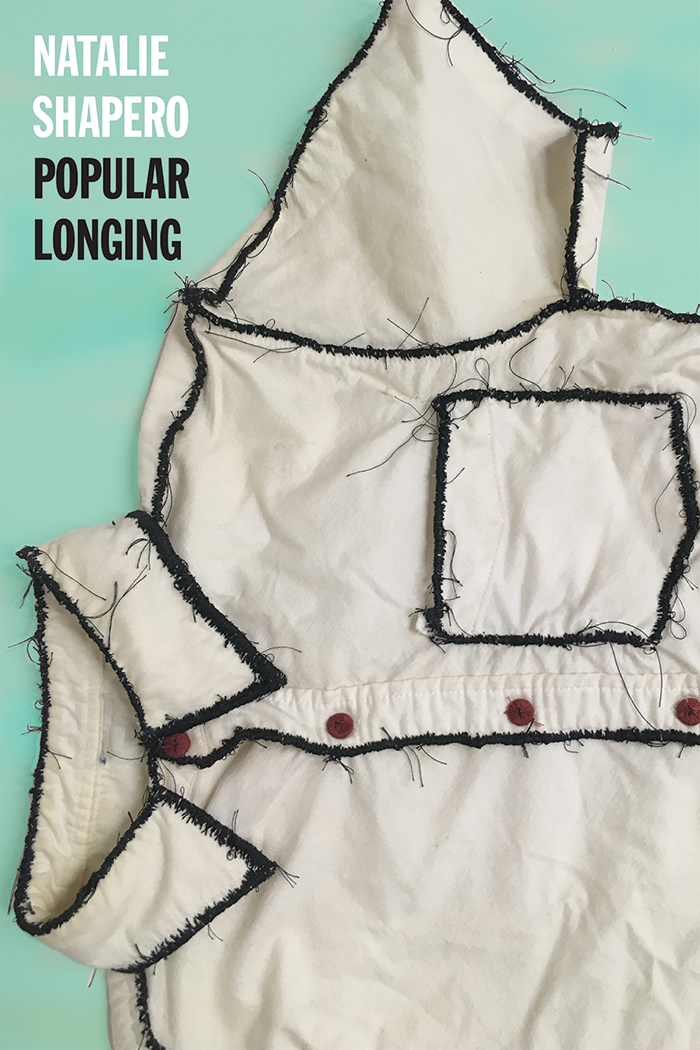 At the center of the collection is the breathtaking tour de force entitled “Don’t Spend It All in One Place,” a series of fourteen fourteen-line poems (though not exactly “sonnets” in a metrical sense), whose themes of violence and art and time, coming “unstuck” in time, make one think of Billy Pilgrim, Kurt Vonnegut’s anti-hero in Slaughterhouse Five. There’s a similar dark humor at work in Shapero’s poems.
At the center of the collection is the breathtaking tour de force entitled “Don’t Spend It All in One Place,” a series of fourteen fourteen-line poems (though not exactly “sonnets” in a metrical sense), whose themes of violence and art and time, coming “unstuck” in time, make one think of Billy Pilgrim, Kurt Vonnegut’s anti-hero in Slaughterhouse Five. There’s a similar dark humor at work in Shapero’s poems.